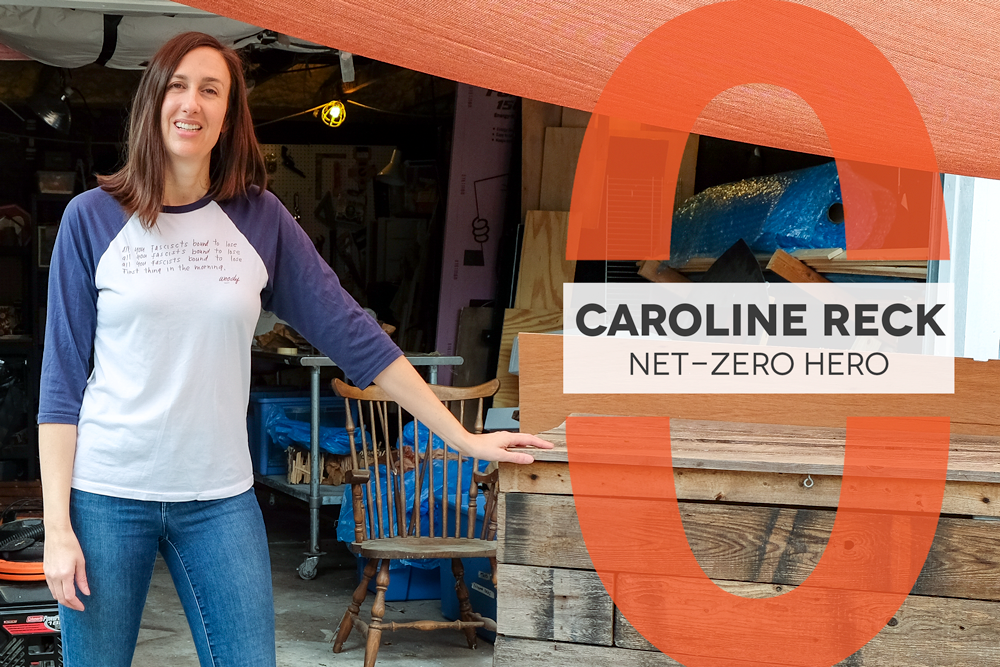Net-Zero Hero: Caroline Reck
I’m helping to make Austin Net-Zero by using repurposed materials to tell stories with purpose.
Meet Caroline Reck, Founder and Producing Artistic Director of Glass Half Full Theatre. Caroline is a puppeteer, and her theatre company creates original works about global issues using puppets and performers. To be clear, when we say “puppeteer,” we aren’t talking about cute furry animals that teach children their manners and ABCs (although those do have a place). Caroline is the kind of puppeteer who focuses on telling original stories and highlighting world dilemmas. To do this, Caroline and her team of performers use puppets made from materials like wood, paper, Styrofoam, discarded plastics, bamboo skewers, and clothesline.
This month, Glass Half Full Theatre will perform “Once There Were Six Seasons – Interactive,” an original work about humankind’s impact on climate change. We spoke with Caroline while touring her workshop to see where the magic happens, and talked with her about what motivates her to live Net-Zero.
What inspired you to take action?
The durability of single-use objects distresses me deeply. As a puppeteer, my work depends on getting an audience to invest in an inanimate object, so the fairly common practice of drinking one time from a plastic cup and then discarding it is baffling to me. Consider for a moment the journey of that cup — from creation, to packaging and shipping, to purchasing, until someone finally drinks from it and throws it away minutes later. That’s a lot of build-up in terms of money, time, and energy for one person to use it for just a few minutes, only to throw it away to decompose over seven or eight hundred years. That cup is going to be here way longer than the person who drank from it. There’s no respect in that system for all of the people and resources used (and misused) along the way, let alone any respect for the object itself. I think we should show greater respect for the people, objects, and resources around us, and we should start by reducing those single-use items like plastic cups.
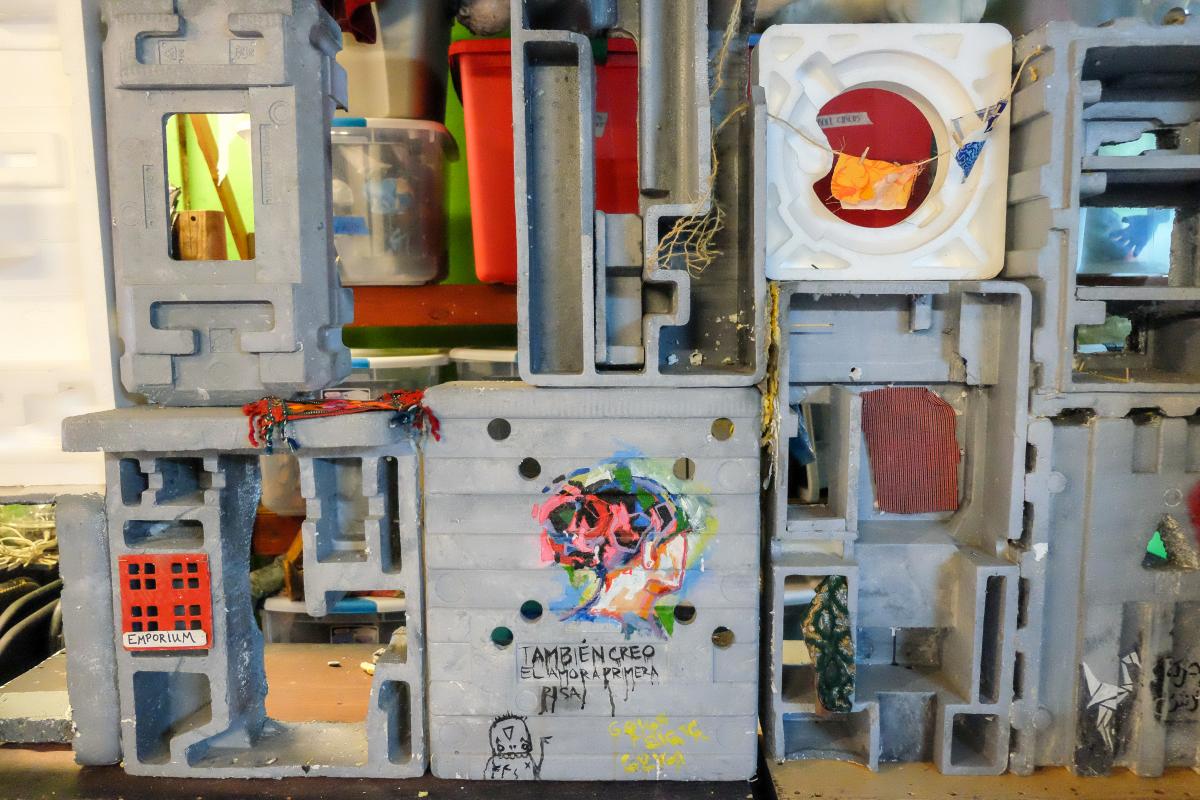
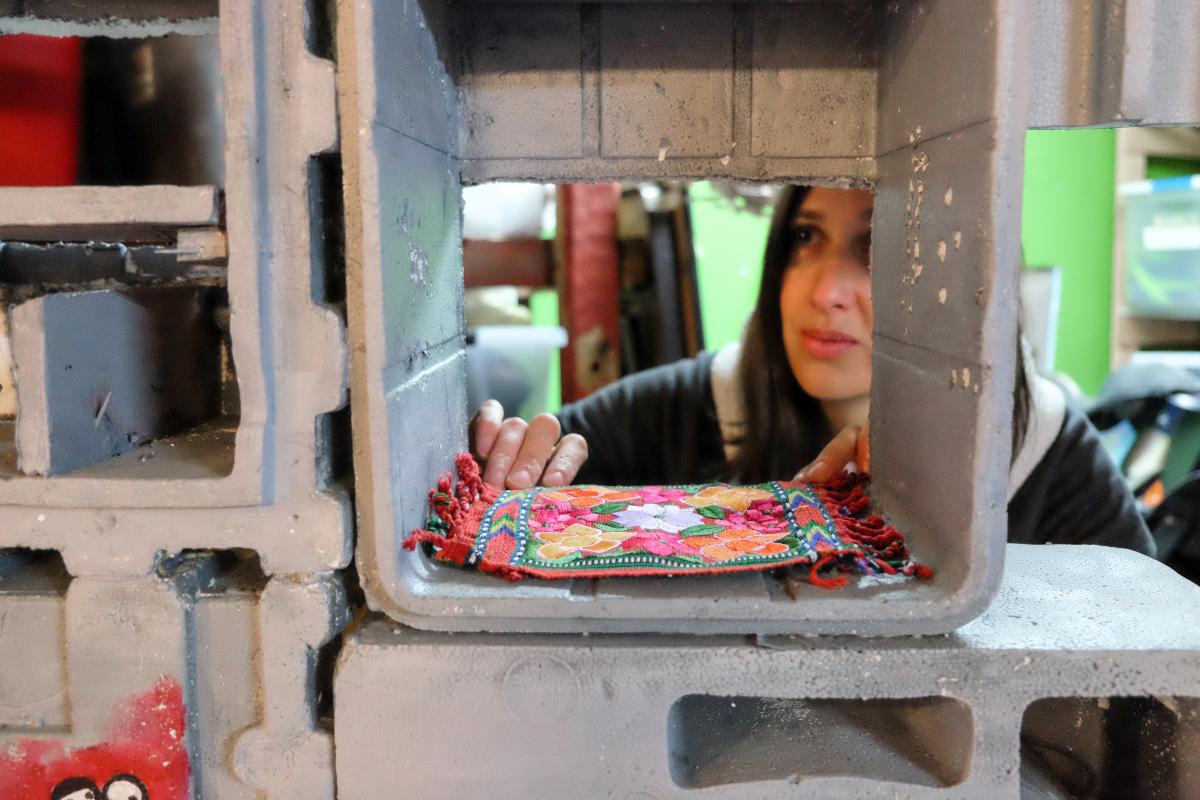
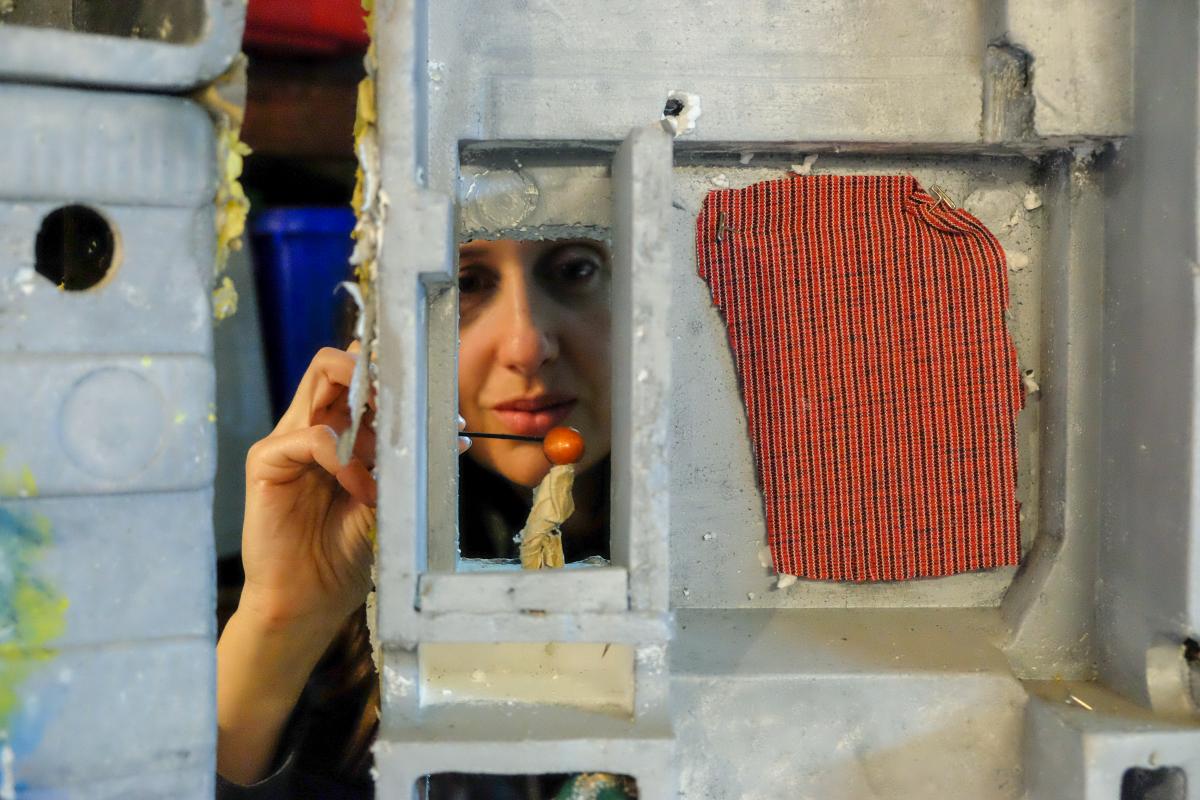
How did you do it?
I started making shows about environmental justice issues and building with repurposed materials years ago, and I’ve been lucky to gather a community who cares about similar issues through my theatre company. It’s hard work, and I find that only the socially and politically motivated artists stick around. I met one of my closest collaborators because she saw a show and we bonded over similar work she’d been exploring, and over time, she’s become a really important part of the company.
What's been the toughest part?
It’s time-consuming to source repurposed items. Storage can be a problem, as I’ll often find interesting objects or materials and need to hoard them for a while until their next purpose is revealed. It’s also really difficult to talk about complex subjects like climate change in a way that is entertaining and enlightening. We try to stick to the optimistic message behind the company name (Glass Half Full) and look for humorous and inspiring ways to address these momentous issues, but the reality of our climate situation can be hard to face.
Have there been any unexpected benefits?
It’s my job to look through trash and junk bins, get inspired by real-world events, and make up stories. I wear overalls to work and use glue and paint. I get to write Facebook posts asking friends to save their Styrofoam packing peanuts for my next play. If you could have told my third-grade self that this would be (part of) how I make my living, I would not have believed you.
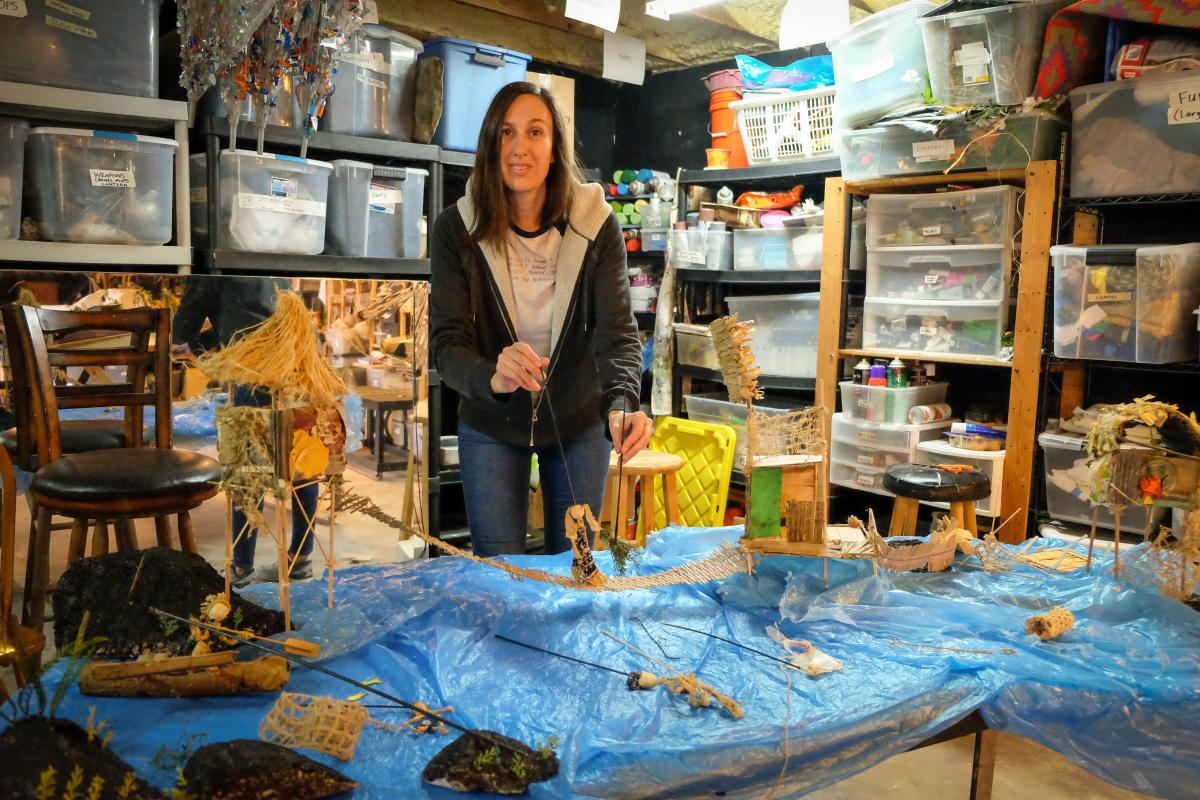
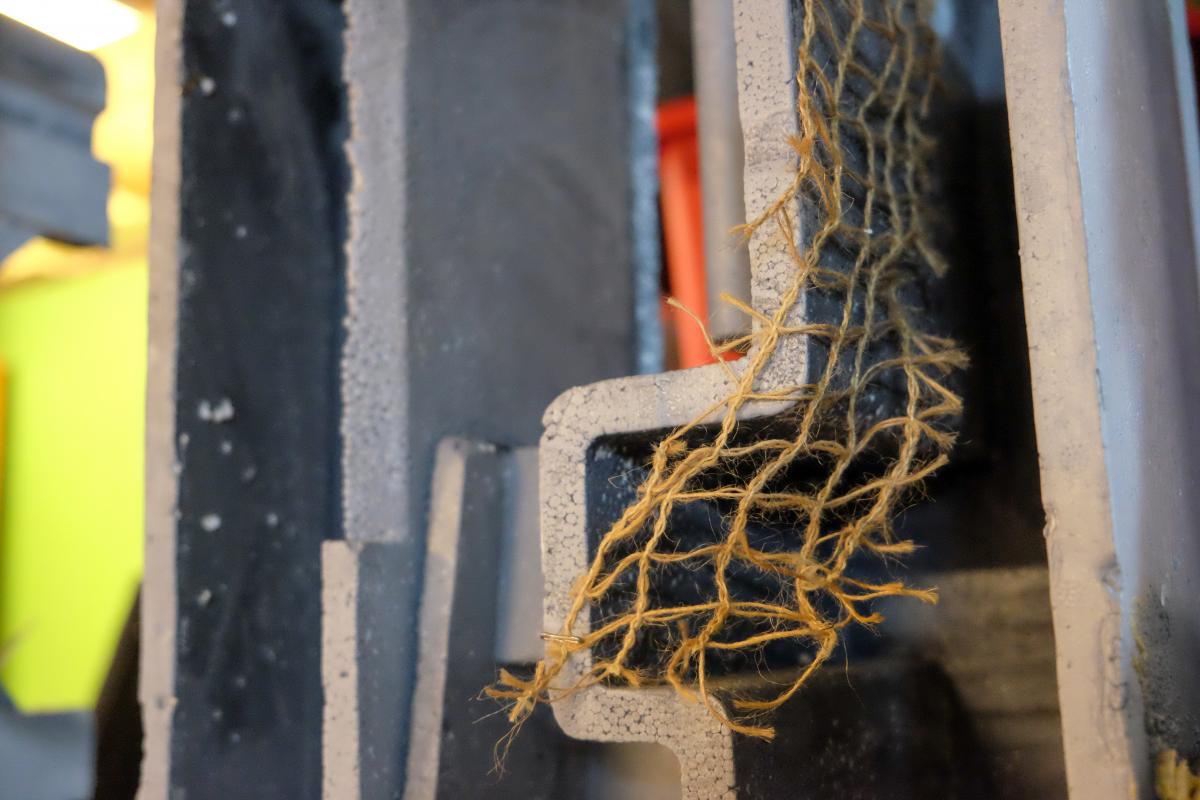
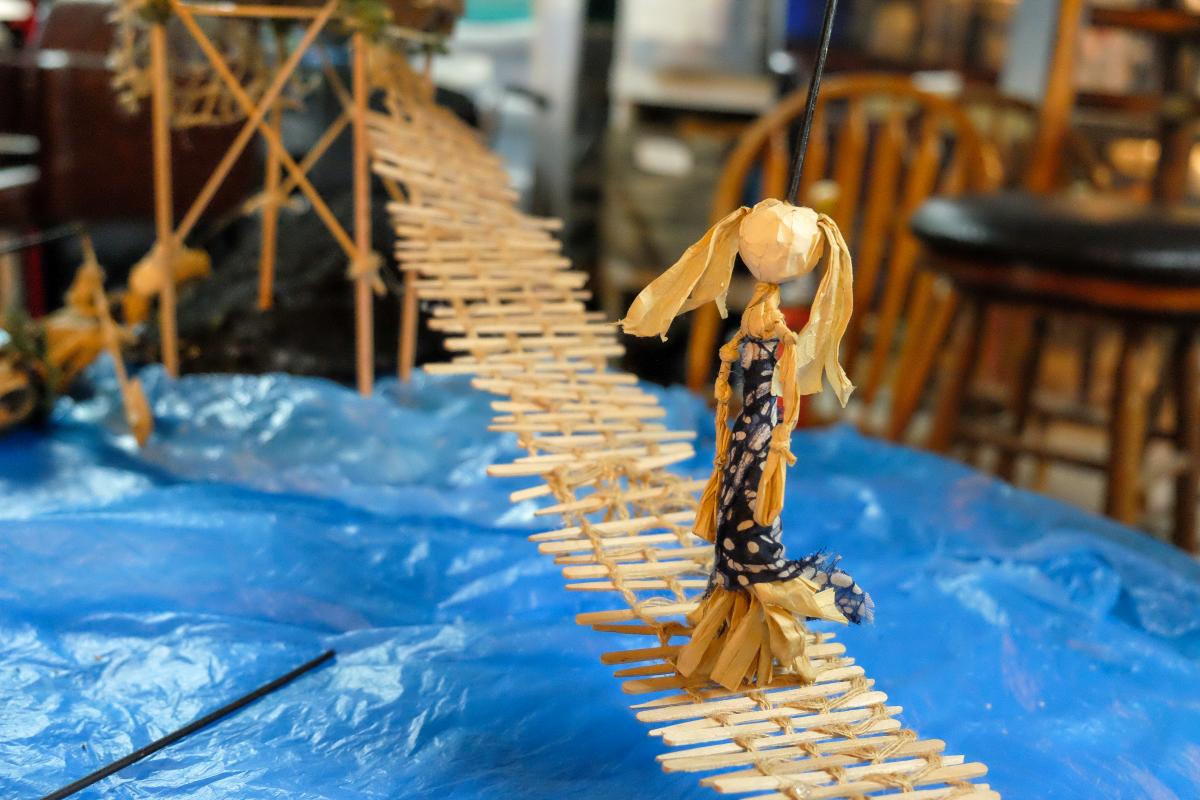
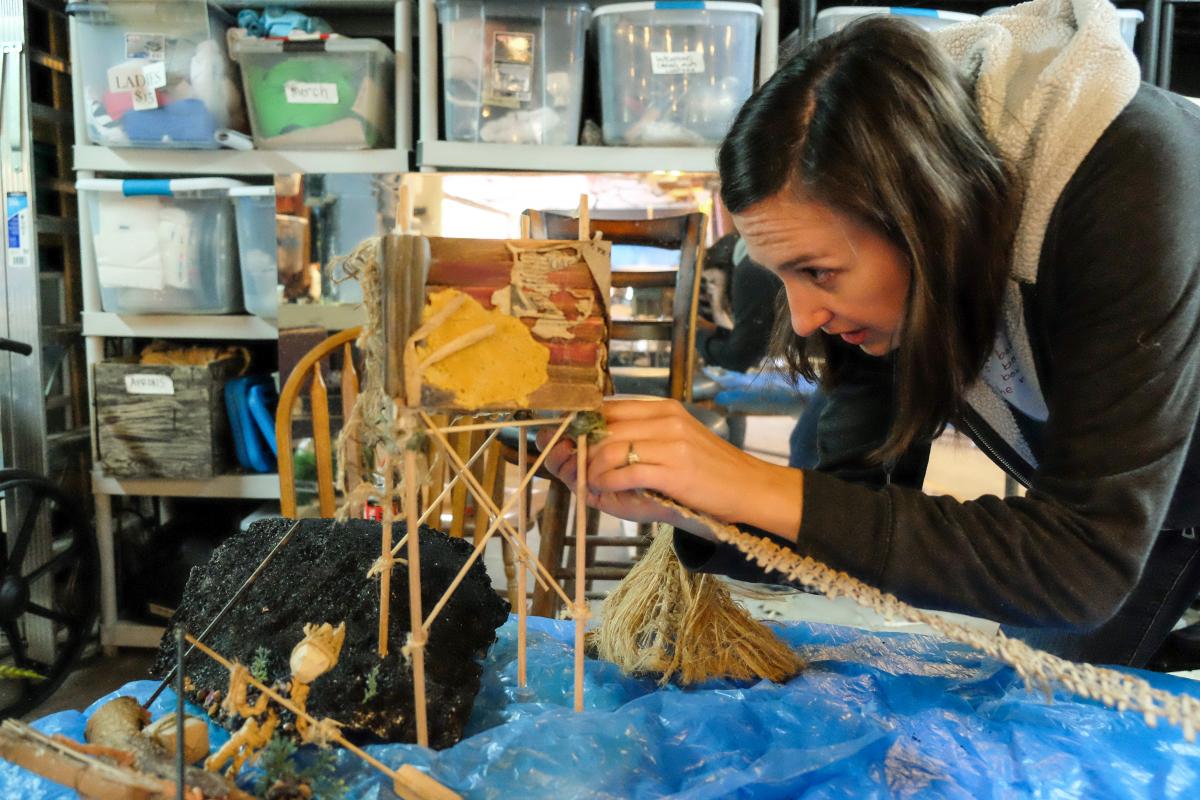
Caroline shows off the puppets she has made. These will feature in the upcoming show "Once There Were Six Seasons."
What advice do you have for others?
Don’t let perfect be the enemy of good. If you want to reduce your carbon footprint, put a gentle focus on an area you think you can improve. Going vegan was easy for me, but giving up airplane travel would break my heart. If steak is your favorite thing ever, then maybe don’t start there.
Also, maybe this is obvious for some, but it was hard for me: you don’t have to hide how you live your life because you’re worried that others will be offended. If you want to bring your reusable cutlery to a picnic, do it. Pull it out. Bust out your compostable garbage bag and offer to bag the “would-be trash” and take it home to your garden. If someone asks, explain. Maybe a few more people will see it’s no big deal to buck the system. More than anything: VOTE — with your ballot and with your wallet.
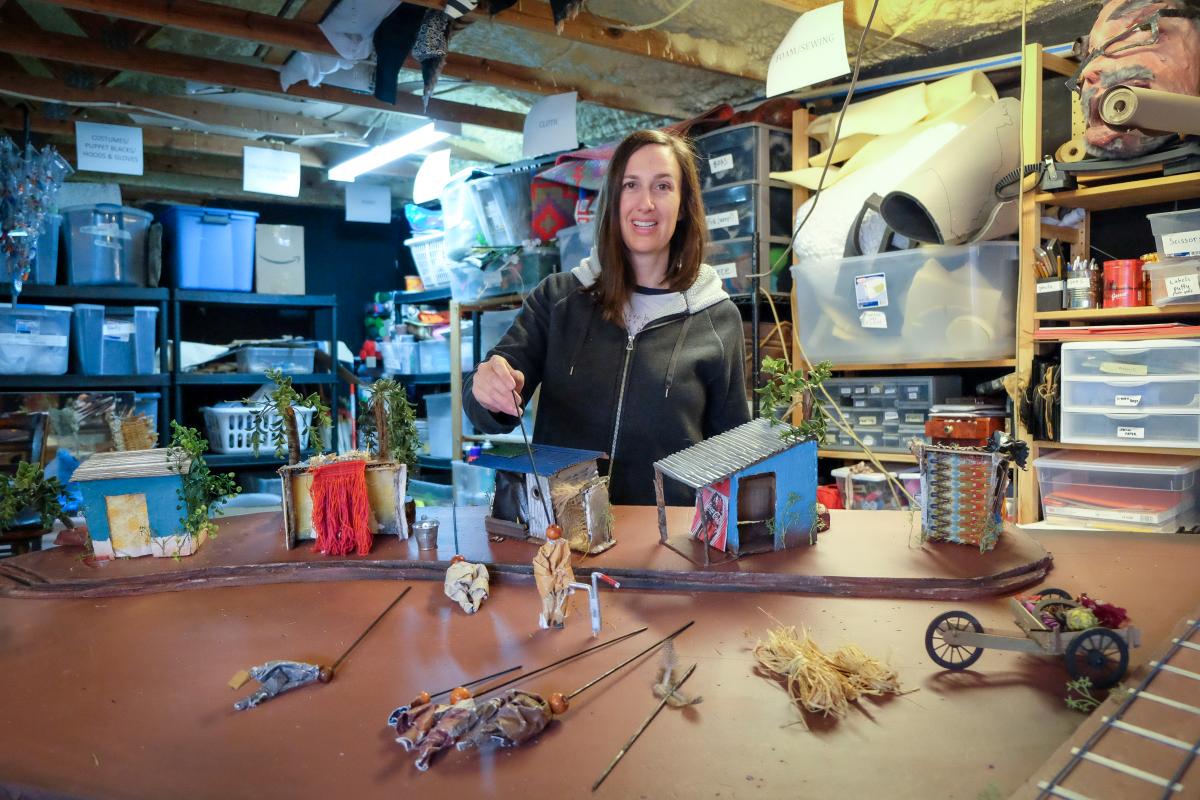
We hope you’ll check out Glass Half Full Theatre’s upcoming production, Once There Were Six Seasons – Interactive. The show runs April 19-May 4. More information and tickets are available here. To learn more about Austin's net-zero goal and the actions you can take to support a greener community, view the Austin Climate Equity Plan.
Share your Net-Zero contributions with us on X (formerly Twitter) or Facebook, and use #NetZeroHero. If you know a Net-Zero Hero (or heroes!) who should be recognized for their efforts, send your nomination to climate@austintexas.gov.


